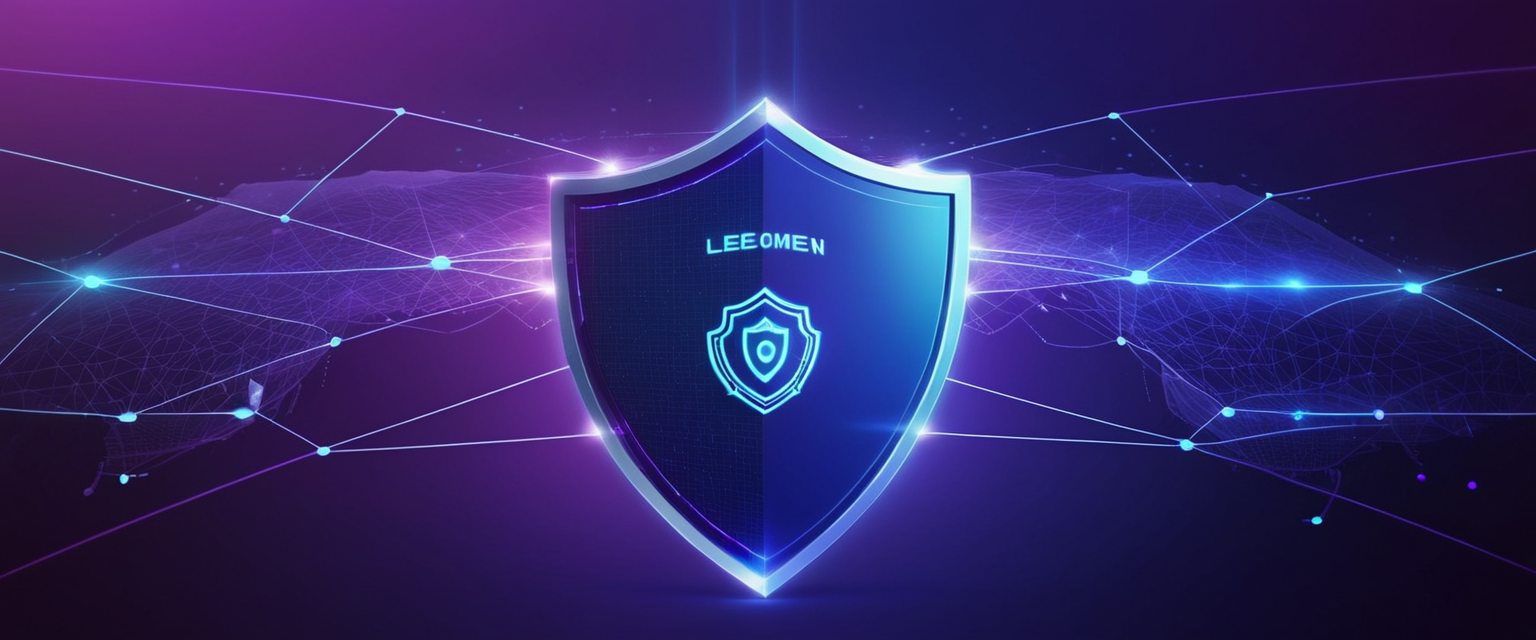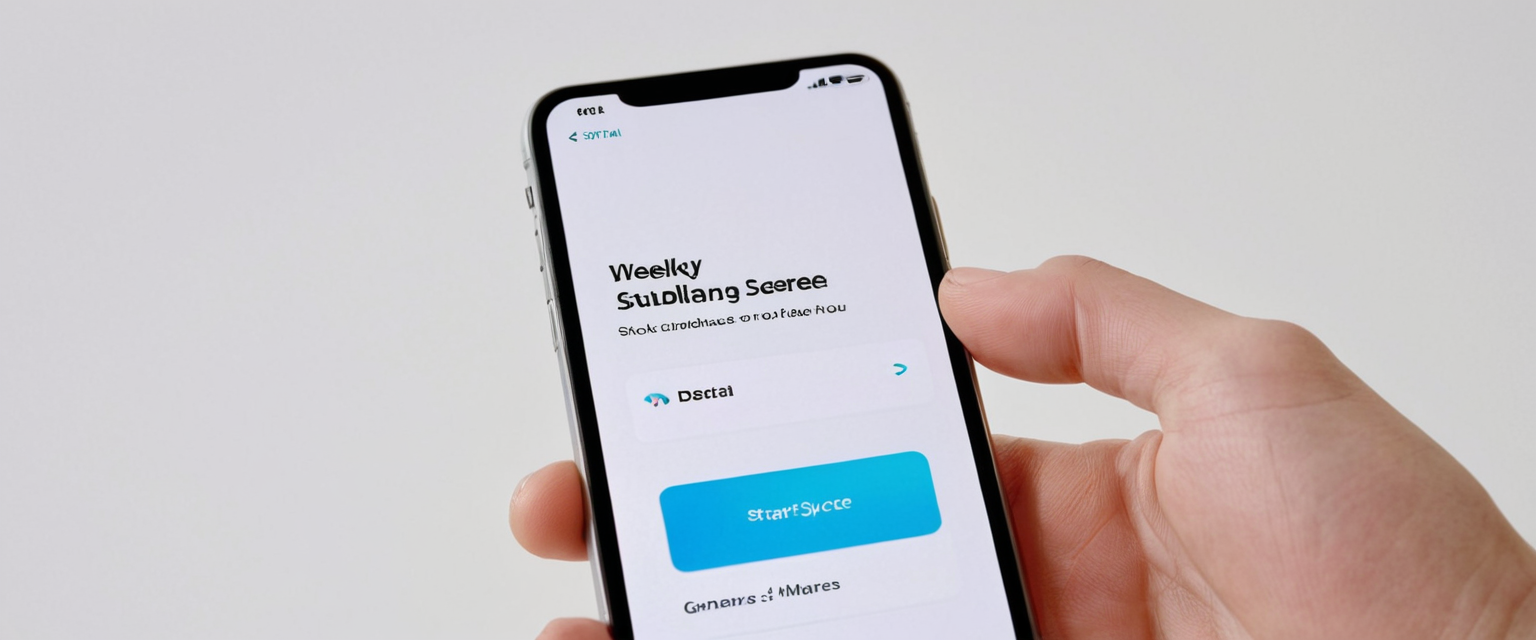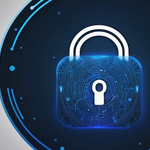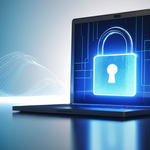
ExpressVPN is not a free VPN service and requires a paid subscription to access its full suite of features and global server network. However, the service does offer multiple pathways for users to experience its platform with minimal financial commitment, including a robust 30-day money-back guarantee that applies to all new subscribers and a seven-day free trial available on mobile platforms. While ExpressVPN operates as a premium, subscription-based VPN provider rather than offering a permanently free tier like some competitors, the combination of its risk-free trial period and comprehensive security features positions it as an accessible option for users seeking to test a reliable VPN service before making a long-term commitment. This analysis explores the complete landscape of ExpressVPN’s pricing structure, the nature of its trial offerings, how it compares to genuinely free VPN alternatives, and whether the cost represents good value for privacy-conscious users.
ExpressVPN’s Paid Subscription Model and Pricing Tiers
ExpressVPN operates exclusively as a paid service with three distinct subscription tiers designed to accommodate different user needs and budgets. The service discontinued its single-plan approach after sixteen years of operation to reflect the evolving nature of online privacy threats and the diverse protection requirements of modern internet users. The Basic tier, beginning at $3.49 per month on a two-year plan, provides essential VPN protection with support for up to ten simultaneous device connections. This foundational plan includes the core VPN functionality that ExpressVPN has been known for since its inception, featuring fast, secure connections powered by their proprietary Lightway protocol without any bandwidth limitations.
The Advanced tier, priced from $4.49 per month on a two-year commitment, builds upon the Basic foundation by adding several supplementary security and privacy features. Users selecting this plan gain access to ExpressVPN Keys, a built-in password manager that eliminates the need for separate applications, alongside Advanced Protection technology designed to shield users from online threats while browsing. The Advanced plan also includes identity monitoring with fraud alerts and restoration services, ensuring that subscribers receive immediate notification if their personal information appears in data breaches. Additionally, this tier provides three days of unlimited eSIM travel data through ExpressVPN’s travel connectivity service, allowing users to connect securely upon arriving in a new country without searching for public Wi-Fi networks. The Advanced plan supports simultaneous connections on twelve devices, providing additional capacity for households with multiple internet-connected devices.
The Premium Pro tier, available from $7.49 per month with a two-year subscription, represents the most comprehensive offering and includes all features from lower tiers plus additional protections and conveniences. The Pro plan extends simultaneous device connections to fourteen devices, sufficient for most multi-device households and small offices. This tier provides five days of unlimited eSIM travel data, two additional days beyond the Advanced plan. Notably, the Pro plan includes ExpressVPN’s dedicated IP service as standard, though this feature is available as an optional add-on for Basic and Advanced subscribers. Pro subscribers also receive a seventy-five percent discount on the Aircove Wi-Fi 6 router with built-in VPN functionality, compared to a fifty percent discount for Advanced users. ExpressVPN also offers identity theft insurance up to one million dollars and access to advanced credit monitoring tools, positioning the Pro tier as the most comprehensive privacy protection package.
Beyond the standard monthly pricing tiers, ExpressVPN frequently provides promotional opportunities that enhance value for new subscribers. Two-year plans typically include four additional months of complimentary service, effectively providing an extended trial period that reduces the monthly cost substantially. One-year plans often include three free months, further reducing the per-month expense for those willing to commit to longer subscription terms. Monthly plans remain available at $12.99 for Basic, $13.99 for Advanced, and $19.99 for Pro, maintaining accessibility for users preferring maximum flexibility despite higher per-month costs. The month-to-month option accommodates users uncertain about long-term commitment or those wanting to test the service before upgrading to longer-term plans.
ExpressVPN’s pricing model reflects the operational costs associated with maintaining quality VPN services. The company invests substantially in a global network of high-performance server clusters distributed across one hundred and five countries, requiring continuous infrastructure investment and maintenance. The service employs trained customer support representatives available through live chat twenty-four hours daily, seven days weekly, representing a significant operational expense absent from free VPN services. Additionally, ExpressVPN maintains a dedicated team of security engineers and developers who constantly optimize the network, create new features, and address emerging threats to user privacy. These investments distinguish premium VPN services like ExpressVPN from free alternatives, which must either limit service quality, track user data, or inject advertisements to generate revenue.
The 30-Day Money-Back Guarantee as a Risk-Free Trial
ExpressVPN’s flagship trial mechanism is the thirty-day money-back guarantee, available exclusively to first-time subscribers. This guarantee allows new users to access the complete, full-featured ExpressVPN service for exactly thirty calendar days, after which they can request a complete refund of their initial payment if unsatisfied. The critical distinction between this guarantee and traditional free trials is that users must enter payment information during signup, allowing the company to charge their payment method upon subscription initiation. However, the thirty-day window provides ample opportunity to thoroughly test all features, assess connection speeds, verify security functionality, and determine whether ExpressVPN meets their privacy and performance requirements.
The mechanics of the money-back guarantee operate with straightforward simplicity designed to minimize customer friction and demonstrate confidence in service quality. First-time users need only sign into their ExpressVPN account, navigate to the Account & Billing section, scroll to the Payment History section, and select the refund option beside the payment they wish to return. Customers can choose to complete an optional survey providing feedback about their experience or proceed directly with the refund request. The entire process requires minimal steps, and ExpressVPN Support maintains availability around the clock via live chat or email to assist users experiencing difficulty. Refunds are typically processed within seven days and credited to the original payment method used for purchase. For users paying through cryptocurrency, refunds are issued in the same cryptocurrency and amount as the original purchase.
The thirty-day period commences at the exact time the subscription is purchased, measured in precisely calendar days rather than a rounded one-month approximation. For example, if a user places an order at eight a.m. on July first, they can request a refund anytime before eight a.m. on July thirty-first to claim a full refund. This precise measurement ensures users receive exactly what was promised without ambiguity or technical complications. The guarantee applies to all subscription tiers and plan durations, whether users purchase a one-month plan, one-year plan, or multi-year commitment. Additionally, if a subscription renews unintentionally, users have fourteen days from the renewal date to request a full refund, providing a secondary safety net for those who forget to cancel during the initial thirty-day window.
Important limitations exist regarding the money-back guarantee’s applicability. The guarantee applies exclusively to first-time users and subscribers who have never previously received a refund from ExpressVPN. Users who previously claimed the money-back guarantee are ineligible for additional refunds, preventing systematic abuse of the policy. Additionally, subscriptions purchased through the Apple App Store (iTunes) do not qualify for ExpressVPN’s money-back guarantee; instead, users must request refunds directly through Apple Support, which are issued solely at Apple’s discretion. Similarly, subscriptions billed through in-app purchases on other app marketplaces follow the respective platform’s refund policies rather than ExpressVPN’s guarantee. These limitations reflect platform requirements rather than ExpressVPN’s preference and stem from the company’s lack of direct control over transactions processed through third-party marketplaces.
This money-back guarantee effectively functions as a superior alternative to traditional free trials, according to ExpressVPN’s positioning. Most conventional free trial programs offer limited-functionality demo versions restricted to single devices with reduced features or compressed timelines lasting only hours or days. In contrast, ExpressVPN’s thirty-day guarantee provides unrestricted access to the complete service, including all servers in one hundred and five countries, unlimited bandwidth without caps, and complete feature access across all simultaneously connected devices. Users can thoroughly evaluate performance across various server locations, assess connection reliability over an extended period, test torrenting capabilities if desired, and verify compatibility with their specific devices and use cases. This comprehensive access period distinguishes the money-back guarantee as a more meaningful trial than restrictive free offerings.

The Seven-Day Free Trial on Mobile Platforms
While ExpressVPN does not offer a permanent free tier, the service does provide genuine seven-day free trials exclusively through iOS and Android mobile platforms. This mobile-only trial requires no credit card or payment information at signup, representing a true no-cost trial opportunity. Users can download the ExpressVPN application directly from the Apple App Store or Google Play Store on compatible devices and activate the free trial immediately without entering financial details. The trial period grants full access to ExpressVPN’s mobile features for seven consecutive days, after which the subscription either lapses or converts to paid service, depending on the user’s configuration.
Protect Your Digital Life with Activate Security
Get 14 powerful security tools in one comprehensive suite. VPN, antivirus, password manager, dark web monitoring, and more.
Get Protected NowThe seven-day free trial on mobile devices carries important distinctions from the thirty-day money-back guarantee. First, this trial is truly free and requires no initial payment or card information. Second, it applies exclusively to iOS and Android devices; users cannot access the trial on desktop computers, routers, or other platforms. Third, the trial operates as a genuine trial period rather than a money-back guarantee, meaning users must manually cancel before the trial expires to avoid automatic conversion to a paid subscription. However, users who forget to cancel before expiration can still leverage ExpressVPN’s thirty-day money-back guarantee if they subsequently sign up for a full plan, effectively extending their risk-free access period.
Additional free trial options exist through select device partnerships, though these are less universally available. ExpressVPN offers thirty-day free trials for partnerships with specific device manufacturers, including leading smartphone brands like Nokia and smart home device makers like Philips. These partnership trials reflect arrangements between ExpressVPN and device manufacturers rather than company-wide offerings and typically apply only to devices purchased through these partnerships. However, users excluded from partnership trials need not feel disadvantaged because the thirty-day money-back guarantee provides equivalent access to the full service at no additional cost.
Why ExpressVPN Is Not Free: The Reality of Premium VPN Services
Understanding why ExpressVPN maintains a paid service model requires examining the fundamental business models and operational requirements of VPN providers. Free VPNs face inherent financial pressures that necessitate revenue generation through alternative means, many of which compromise user privacy and security. An independent study examining over twenty-five thousand free proxy services discovered that the vast majority blocked HTTPS connections, injected data into user traffic, or modified content in harmful ways. Free VPN providers cannot sustainably fund server infrastructure, security audits, developer salaries, and customer support without revenue generation. Consequently, many free services resort to data logging and selling browsing histories to advertisers, injecting targeted advertisements into browsing sessions, stealing user bandwidth to monetize it, or recording usernames, passwords, and banking information for nefarious purposes.
ExpressVPN, by contrast, has built a business model predicated on charging users for access to premium privacy protection rather than exploiting user data. This approach eliminates conflicts of interest between user privacy and corporate revenue and ensures that user privacy remains the highest priority. The subscription fees directly fund the substantial infrastructure required to maintain fast, reliable, and secure VPN services. ExpressVPN operates thousands of servers distributed globally across one hundred and five countries, each requiring ongoing maintenance, security updates, and performance optimization. These servers run on RAM rather than hard drives, a more expensive but far more secure architecture that prevents data persistence even if servers are physically compromised. This TrustedServer technology, which wipes all data with every reboot, represents an innovation requiring significant engineering investment absent from competing services.
The commitment to user privacy extends beyond infrastructure to encompass rigorous independent audits and transparency reporting. ExpressVPN regularly submits its systems and policies to third-party security auditors including KPMG, PwC, and Cure53, who independently verify that the company’s no-logs policy operates as promised. These audits cost substantial sums yet represent essential investments in earning and maintaining user trust. Additionally, ExpressVPN publishes comprehensive transparency reports every six months documenting legal requests from governments and law enforcement agencies, demonstrating accountability and commitment to user rights. In the first half of 2025, the company received three hundred and seventy-four formal legal requests and provided zero responsive data because its no-logs infrastructure contains nothing to disclose.
The twenty-four-hour customer support team represents another cost center distinguishing premium services from free alternatives. ExpressVPN maintains trained support representatives fluent in multiple languages available via live chat, email, and knowledge base resources around the clock. Free VPN services typically provide no human support, forcing users to troubleshoot independently or abandon the service. This commitment to customer service ensures that technical issues receive prompt resolution and new users receive guidance through setup processes, enhancing overall satisfaction and encouraging continued use.
The Lightway protocol, ExpressVPN’s proprietary VPN protocol, exemplifies the engineering investment distinguishing premium services. Lightway was engineered from the ground up to address modern user needs, particularly emphasizing performance on mobile devices and reliability through network transitions. The protocol was originally coded in C but has been completely rewritten in Rust, a modern programming language offering superior memory safety and performance characteristics. This reimplementation required substantial engineering resources but delivered demonstrable improvements in speed and security. Post-quantum protection built directly into Lightway ensures that user data remains protected against future quantum computing threats, positioning ExpressVPN at the forefront of cryptographic standards. These innovations require continuous research, development, and testing investments that free services cannot support.

Comparing ExpressVPN to Free VPN Alternatives
The landscape of free VPN options appears superficially attractive to budget-conscious users but conceals substantial risks to privacy and device security. Several free VPNs do exist and can technically be used without payment, including services like Proton VPN Free, PrivadoVPN, Hide.me, and Hotspot Shield Basic, though each comes with meaningful limitations and potential drawbacks. Proton VPN’s free tier offers unlimited bandwidth at the cost of slower speeds and access to only five server locations in limited countries. PrivadoVPN’s free plan provides ten gigabytes monthly data allowance with access to thirteen servers across ten countries. These free services, while safer than many alternatives, sacrifice either speed, server selection, or bandwidth, creating practical limitations on their utility.
The security and privacy risks associated with free VPN services deserve serious consideration, as the saying goes, “if the product is free, you are the product.” Free VPN providers without subscription revenue must generate income through alternative mechanisms, nearly all of which compromise user privacy and security. Data harvesting represents the most common monetization strategy, whereby free VPNs log extensive information about user browsing habits, visited websites, and online behavior, then sell this aggregated data to advertising companies, data brokers, and marketing firms. Users accessing a free VPN expecting privacy protection often experience exactly the opposite outcome, with their browsing behavior tracked, catalogued, and commodified. Mozilla VPN research indicates that free VPN services frequently lack proper encryption or strong security measures, leaving users vulnerable to cyber threats despite the nominal VPN protection. Additionally, free services often inject targeted advertisements directly into user browsing sessions, bombarding users with unwanted promotions while generating per-click revenue for the VPN provider.
ExpressVPN distinguishes itself through absolute rejection of these revenue models. The service maintains a strict no-logs policy, meaning no activity logs or connection logs are retained, and minimal metadata collected for technical purposes cannot be connected to specific user behavior. ExpressVPN does not see or record websites users visit, does not retain DNS queries, and does not store IP addresses users are assigned. Even if law enforcement or government agencies subpoena ExpressVPN for user data, the company cannot provide information that was never collected or stored. This technical architecture ensures privacy protection occurs by design rather than merely by policy promise.
The performance disparities between free and paid VPNs prove substantial in practical use. Free VPNs typically limit bandwidth or implement throttling that dramatically reduces connection speeds, creating frustrating experiences for users attempting to stream video, download files, or conduct bandwidth-intensive activities. Paid premium services like ExpressVPN optimize servers for speed and carry no bandwidth caps, enabling unrestricted browsing, streaming, and downloading. Speed testing reveals that ExpressVPN connections demonstrate minimal performance degradation compared to non-VPN connections, with losses typically between seven and fifteen percent depending on server distance. Many free services show speed losses exceeding fifty percent or more, rendering them unsuitable for practical streaming or download needs.
Server selection and geographic coverage represent another critical differentiator. ExpressVPN operates servers in one hundred and five countries, providing users with options for connecting to almost any desired geographic location. Free VPNs typically restrict access to servers in only a handful of locations, limiting users’ ability to access region-specific content or achieve geographic diversity for legitimate purposes. Limited server selection also creates performance bottlenecks, as thousands of free VPN users share limited server resources, resulting in congestion, slow speeds, and connection drops.
Encryption quality and security features demonstrate material differences between service tiers. ExpressVPN employs AES-256 encryption, the same military-grade standard used by the U.S. Department of Defense and security agencies worldwide. Free VPNs often implement basic or outdated encryption protocols that cryptographic experts have already broken or identified weaknesses within. ExpressVPN includes security features absent from free services, including DNS leak protection preventing ISP visibility into domain lookups, IPv6 leak protection, kill switch functionality that terminates internet connectivity if the VPN connection drops, and split tunneling enabling selective traffic routing through or around the VPN.
The Risk-Free Trial Experience and Testing ExpressVPN
Potential users considering ExpressVPN can effectively access the complete service free of financial risk for thirty days, sufficient time to comprehensively evaluate whether the service meets their specific needs. During this thirty-day period, users experience identical functionality and performance available to long-term subscribers, including access to all one hundred and five server locations, unlimited bandwidth, multiple simultaneous device connections, and complete security features. This extended evaluation window allows users to test critical functionality including connection speed across different server locations, reliability during network transitions between Wi-Fi and mobile data, compatibility with desired devices and platforms, and performance with specific use cases like streaming or torrenting.
The testing process during the risk-free trial should follow a structured approach ensuring comprehensive evaluation of relevant factors. Users should first test connection speed on multiple server locations using speedtest utilities, comparing speeds against non-VPN baselines to assess performance degradation. Testing connections across geographically diverse servers provides insight into network performance globally rather than relying on local or nearby servers that may perform better than distant options. Users should verify compatibility and functionality on all relevant devices, including computers, smartphones, tablets, and smart devices on which they anticipate using ExpressVPN regularly. Testing streaming compatibility with specific services like Netflix, Disney Plus, or other geographically restricted content provides practical evidence of ExpressVPN’s unblocking capabilities.
Security and privacy functionality merits thorough testing during the trial period as well. Users can verify that IP address replacement functions correctly by visiting IP checking websites while connected to the VPN and confirming their displayed location matches the connected server rather than their actual location. Testing DNS leak protection ensures that domain lookups do not expose the user’s actual identity even with the VPN active. Kill switch functionality can be verified by observing whether internet connectivity terminates immediately if the VPN connection drops, confirming that the kill switch successfully prevents unencrypted data transmission. These security tests provide practical confidence in the technical protections that privacy-conscious users are purchasing.
User experience and interface friendliness can be properly evaluated only through extended use during the trial period. ExpressVPN’s interface is intentionally designed for simplicity, with one-click connection enabling even inexperienced users to activate VPN protection quickly. The mobile applications provide similarly straightforward interfaces optimized for touch navigation. Users accustomed to more complex VPN interfaces may require time to familiarize themselves with ExpressVPN’s streamlined approach, making the thirty-day trial period ideal for building comfort and confidence. The twenty-four-hour customer support team can answer questions and provide guidance on using specific features or troubleshooting issues that emerge during initial usage.
If users conclude that ExpressVPN does not meet their expectations after thoroughly testing during the thirty-day period, the refund request process remains straightforward and hassle-free. Users experiencing genuine dissatisfaction need not navigate complications or provide extensive explanations; ExpressVPN’s refund policy explicitly permits full refunds for any reason during the thirty-day window. This no-questions-asked approach reflects genuine confidence in service quality and removes decision anxiety from the trial period. Users can request refunds by contacting the support team via live chat, email, or self-service account interface.

Pricing Strategies, Value Analysis, and Long-Term Cost Considerations
The strategic pricing structure ExpressVPN implements incentivizes longer-term commitments through substantially reduced per-month costs while maintaining acceptable pricing for month-to-month flexibility. Two-year plans offering approximately $3.49 monthly for Basic service represent approximately seventy-three percent savings compared to month-to-month pricing at $12.99 monthly. The per-month cost reduction for longer commitments reflects standard business practices recognizing that annual or multi-year subscribers represent lower churn risk and stable revenue streams. However, this pricing structure requires users to commit capital upfront, with two-year Basic plans costing approximately three hundred sixty-four dollars initially. Users uncertain about long-term VPN needs can test the service through the thirty-day money-back guarantee before committing to multi-year contracts.
Promotional offerings frequently make longer-term plans even more attractive by including additional free months bundled with primary subscription periods. Two-year plans often include four complimentary months extending the service period to twenty-eight months for the quoted price, effectively providing one month free and reducing the actual monthly cost below advertised figures. One-year plans typically include three free months, similarly improving value. These promotional inclusions vary based on current marketing campaigns and timing of purchase, with promotional offers appearing frequently but not continuously. Users should visit ExpressVPN’s order page to confirm current promotional offers before committing to payment.
Comparative analysis against other premium VPN providers reveals ExpressVPN’s pricing remains competitive despite premium positioning. NordVPN’s Standard tier begins at $2.99 monthly with two-year commitment, approximately fifty cents cheaper than ExpressVPN’s Basic tier at $3.49. However, ExpressVPN differentiates through speed performance, with independent testing demonstrating ExpressVPN speeds approximately ten to fifteen percent faster than NordVPN across multiple geographic regions. Surfshark positions itself as a budget option starting at $1.99 monthly but limits simultaneous connections, whereas ExpressVPN’s Basic plan supports ten simultaneous connections at only fifty percent higher cost. Private Internet Access offers similar pricing to Surfshark but emphasizes customization options and technical features rather than user-friendly simplicity. ExpressVPN’s positioning emphasizes ease of use, performance, and comprehensive security rather than achieving the absolute lowest price.
The three-tiered pricing structure ExpressVPN introduced in 2025 represents an evolution addressing diverse user needs rather than one-size-fits-all compromises. Users prioritizing cost minimization can select Basic tier at $3.49 monthly and receive excellent core VPN functionality with only ten-device simultaneous connection limitation as the primary constraint compared to higher tiers. Users valuing additional security features including password manager, threat protection, and identity monitoring find Advanced tier at $4.49 monthly providing incremental features for only one dollar additional monthly expense. Users desiring comprehensive protection including dedicated IP, advanced credit monitoring, and maximum device connections justify Pro tier at $7.49 monthly through premium features targeted at privacy-conscious power users.
Is ExpressVPN Free? The Final Verdict
The direct answer to the question “Is ExpressVPN free?” is definitively no—ExpressVPN requires paid subscription to access the service beyond the limited trial periods. However, this straightforward answer requires significant nuance because ExpressVPN provides multiple mechanisms allowing users to experience the service with minimal or zero financial commitment. The thirty-day money-back guarantee functions as a comprehensive free trial offering full access to every feature and server location without requiring payment upfront, though payment information remains necessary. The seven-day free trial available exclusively on iOS and Android mobile platforms provides genuine free access requiring no payment or financial information. These trial options distinguish ExpressVPN from competitors offering exclusively paid access with no trial period whatsoever.
The premium pricing ExpressVPN commands reflects substantial investments in infrastructure, security, customer support, and privacy protections that fundamentally distinguish paid VPN services from free alternatives. Users selecting ExpressVPN over free VPN options gain encryption quality, server performance, customer support, and privacy protections absent from free services. The subscription fees directly fund the engineering and operational investments required to maintain legitimate privacy protection rather than monetizing user data or displaying intrusive advertisements.
For users uncertain whether ExpressVPN meets their needs, the thirty-day money-back guarantee removes financial risk from the trial decision. First-time subscribers can thoroughly evaluate service quality, test compatibility with their devices and use cases, and verify performance across relevant server locations during the full thirty-day period. If expectations are not met, refund requests receive immediate processing without complications or justification requirements. This risk-free structure demonstrates genuine confidence in service quality while respecting that VPN preferences vary based on individual priorities and requirements.
Ultimately, while ExpressVPN is not free, the cost represents reasonable investment for privacy protection combined with multiple opportunities to evaluate the service before financial commitment. Users prioritizing absolute cost minimization will find cheaper alternatives, though free services typically sacrifice privacy, speed, or functionality to achieve lower pricing. Users valuing comprehensive privacy protection, fast speeds, global server access, and legitimate customer support find ExpressVPN’s subscription pricing justified by the premium features and peace of mind provided. The availability of risk-free trial mechanisms ensures that financial concerns need not prevent interested users from directly experiencing whether ExpressVPN delivers on its privacy protection promises.






